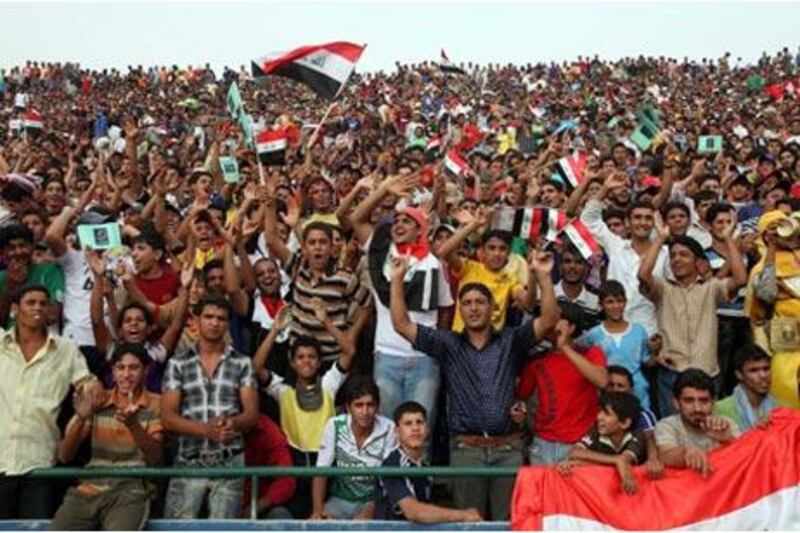It was a game between the war-ravaged and the homeless, two exiled teams that had wandered nomadically through the empty, foreign stadiums of international football thanks to war, assassination and occupation. The Palestinian national team arrived in Baghdad on Monday to play Iraq in a match that had far greater significance than the 4-0 hammering they received suggests. It was the first international football match the Iraq capital had seen since the American-led invasion of 2003. The Iraqis had already beaten Palestine 3-0 in the first leg, played in April in the northern Kurdish capital of Irbil. But it was the Baghdad game that proved hugely significant to the host country's recovery; for the visiting Palestinians, it marked a rare chance to play abroad away from the confines of the West Bank and Gaza.
"It is significant not just for the Palestinians and the Iraqis but for everyone in the region," said Susan Shalabi, director of the Palestinian Football Association. "The Palestinians, who have themselves been besieged, were the first to break the siege on Iraq." If you understand football in Iraq and Palestine, you understand the very real political problems that have cursed the teams of both nations. Following the 2003 invasion, Iraq's footballers were targeted for assassination and kidnap by both insurgents and criminals, the latter trying to exploit the country's football stars for extortion, the former using intimidation to undermine one of the few symbols of a united Iraq that brought together Sunni, Shia and Kurd.
"I'd lost two members of my family," said Hawar Mullah Mohammad, an Iraqi Kurd who last season became the first Iraqi to play, and score, in the Champions League and who scored two goals against Palestine. "I had to pick up my two guns before going to practice, because I'd been threatened." Almost all the players fled abroad, and internationals had to be played in Amman, Doha or Dubai. And yet for all the threats and the violence the Iraqis flourished, reaching the semi-finals of the 2004 Olympics before, stunningly, winning the Asian Cup in 2007. Even in victory, more than 50 fans were massacred by suicide bombers in Baghdad who feared the outpouring of joy, nationalism and unity that the tournament inspired.
The Palestinian team hadn't fared much better. After being recognised by Fifa in 1998 the team set about trying to qualify for the World Cup. But Israeli restrictions on their movement ended that dream as players were routinely detained and refused permission to travel for key matches. Several players have died too, including former internationals in the recent bombardment of Gaza. Despite the disappointment of the past few years, the Palestinian FA managed to secure a permanent stadium on the outskirts of Jerusalem, hosted their first ever home game, against Jordan last October, and restarted the domestic Gaza and West Bank leagues.
Both teams can now dare to dream of normality. While Iraq didn't qualify for the 2010 World Cup, the football league has returned to the country's cities as security improves. The future also looks brighter for the Palestinians. The West Bank league begins again next month and the African champions, Egypt, travel there next month for Palestine's second home game, arguably their toughest ever test.
But for Shalabi the result, even a 7-0 aggregate defeat by Iraq, isn't important. "The only loss for the Palestinians was the score," she said. "Everything else was a victory." sports@thenational.ae





